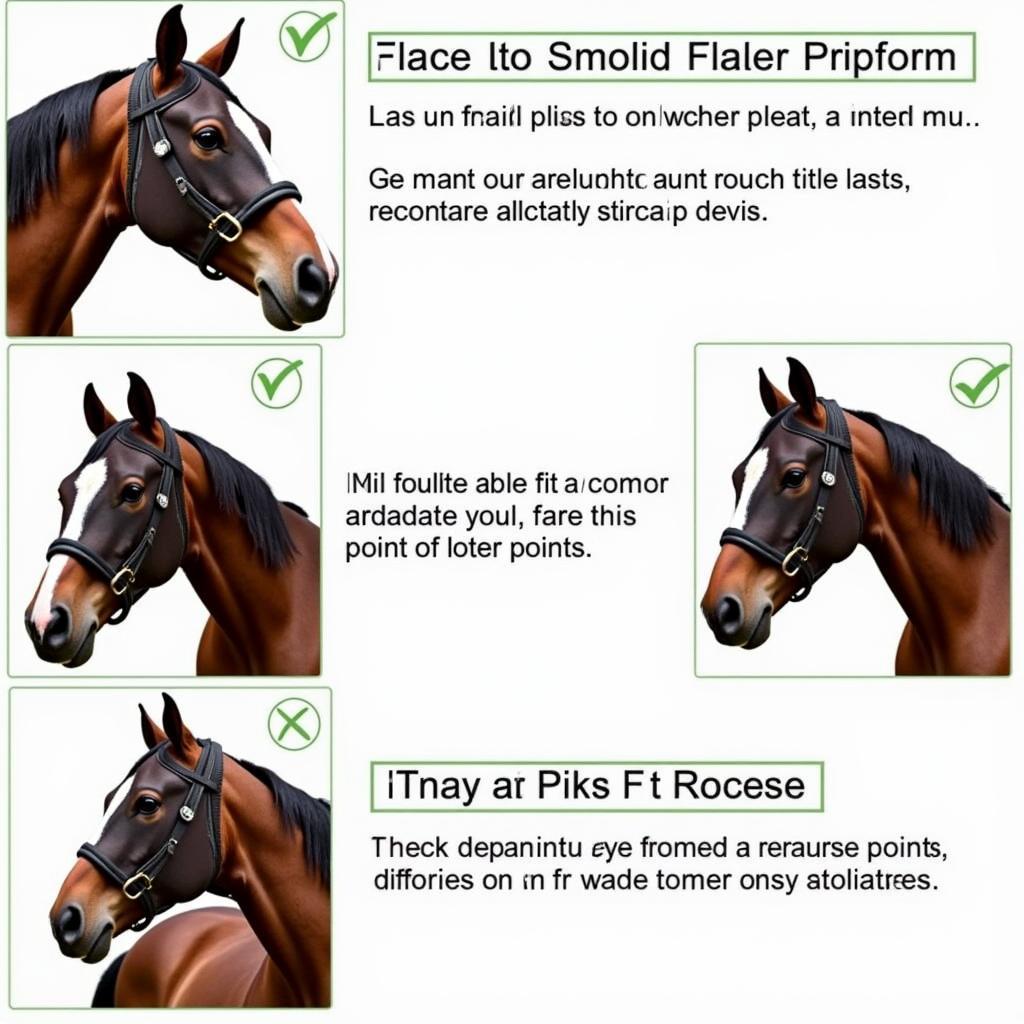Compression masks for horses are becoming increasingly popular among horse owners and equine professionals. They offer a range of potential benefits, from reducing inflammation and swelling to promoting relaxation and improving circulation. This guide will explore everything you need to know about horse compression masks, including their uses, benefits, and how to choose the right one for your equine companion.
A Compression Mask For Horses is designed to apply gentle, consistent pressure to the horse’s head and face. This pressure can have a variety of therapeutic effects, making these masks a valuable tool for horse owners. It’s important to choose a horse compression mask that fits well and is made from breathable material to ensure your horse’s comfort.
Understanding the Benefits of Horse Compression Masks
Why might you consider a compression mask for your horse? Several reasons exist, and understanding these benefits can help you determine if a compression mask is right for your horse. Compression therapy can aid in reducing inflammation and swelling, particularly after injuries or strenuous exercise. They can also promote relaxation and reduce anxiety in horses, making them beneficial for travel or during stressful situations.
- Reduced inflammation and swelling
- Improved circulation
- Relaxation and anxiety reduction
- Enhanced recovery after exercise
- Relief from headshaking and other neurological conditions
Some horse owners also use compression masks to help manage headshaking, a neurological condition that can cause horses to shake their heads excessively. The gentle pressure of the mask can help to desensitize the nerves in the face and reduce the frequency and intensity of headshaking episodes.
Choosing the Right Compression Mask for Your Horse
Selecting the appropriate compression mask involves considering several factors. The mask should fit snugly but not be too tight, allowing for comfortable breathing and movement. Breathability is essential, especially in warmer climates, to prevent overheating. Durability is another key factor, as a well-made mask should withstand regular use and washing. Finally, consider the specific needs of your horse. Does your horse have any sensitivities or allergies? Is the mask intended for use during travel, competition, or recovery?
Key Considerations When Selecting a Mask
- Fit: Ensure a snug yet comfortable fit.
- Material: Opt for breathable and durable fabrics.
- Intended Use: Consider the purpose of the mask (travel, competition, recovery).
- Horse’s Needs: Address any specific sensitivities or allergies your horse might have.
A knee brace for horses can also be beneficial for horses recovering from injuries.
How to Use a Compression Mask Safely and Effectively
While compression masks offer numerous benefits, they should be used correctly to ensure safety and effectiveness. Always introduce the mask gradually, allowing your horse to become accustomed to the sensation. Monitor your horse for any signs of discomfort or irritation. Never leave the mask on for extended periods without supervision, and always remove the mask if your horse shows signs of distress.
Tips for Safe and Effective Use
- Introduce the mask gradually.
- Monitor your horse for signs of discomfort.
- Never leave the mask on unsupervised for extended periods.
- Remove the mask if your horse shows signs of distress.
“Proper introduction and monitoring are crucial for ensuring your horse accepts the compression mask and benefits from its therapeutic effects,” says Dr. Emily Carter, DVM, an equine specialist with over 20 years of experience.
 Horse Compression Mask Application Techniques
Horse Compression Mask Application Techniques
Conclusion
Compression masks for horses are a valuable tool for promoting equine health and well-being. From reducing inflammation and swelling to promoting relaxation, these masks offer a range of potential benefits. By understanding the different types of masks available, choosing the right one for your horse, and using it correctly, you can help your equine companion enjoy the many advantages of compression therapy. Consider a dress up for horses for special occasions.
FAQ
- How long can a horse wear a compression mask?
- Can compression masks be used on all breeds of horses?
- Are there any risks associated with using compression masks on horses?
- How do I clean a horse compression mask?
- Can a compression mask help with my horse’s anxiety during trailering?
- What are the signs that a compression mask doesn’t fit properly?
- Can I use a compression mask on my horse overnight?
“Remember to consult with your veterinarian before using a compression mask, especially if your horse has any underlying health conditions,” adds Dr. Carter. “They can help you determine if a compression mask is appropriate for your horse’s specific needs and guide you on the proper usage.”
For support, contact us at Phone: 0772127271, Email: [email protected], or visit us at QGM2+WX2, Vị Trung, Vị Thuỷ, Hậu Giang, Vietnam. We have a 24/7 customer service team.